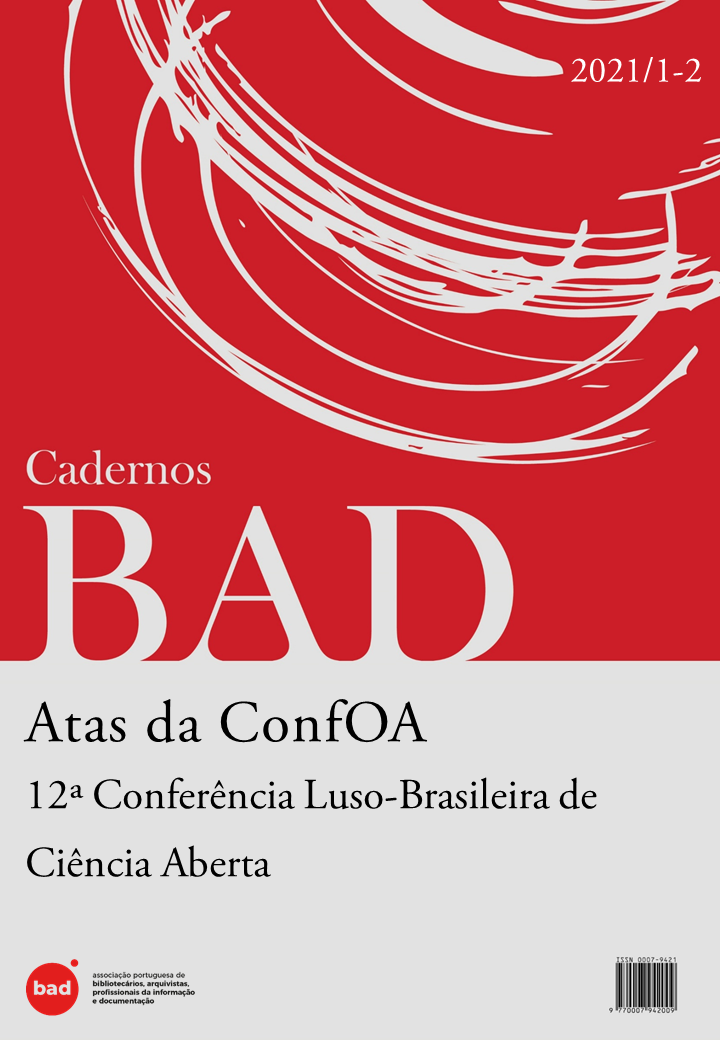ISEG's Institutional Repository
DOI:
https://doi.org/10.48798/cadernosbad.2793Keywords:
Repositório Institucional, ISEG, Acesso Aberto, RCAAPAbstract
The purpose of this study is to analyse the relevance of the repository, through the survey of statistical data related to both the deposited documents and their use, seen through the number of accesses. It is intended to validate the hypothesis that the repository has been consolidated with the academic community, which determines the growing impact of scientific production outside the institution.
Downloads
References
BAILEY JR, C. W. (2008) - Institutional repositories, tout de suite. Digital Scholarship, 10, s.p.. [consult. 08 out. 2021]. Disponível na Internet http://digital-scholarship.org/ts/irtoutsuite.pdf>
BARTON, M. R., & Waters, M. M. (2004) - Creating an institutional repository: LEADIRS workbook. Cambridge, MA: MIT Libraries.
CASSELLA, M. (2010). Institutional repositories: An internal and external perspective of the IRs value for the researchers ‘communities. LIBER Quarterly, 20(2), 210–225. consult. 08 out. 2021]. Disponível na Internet https://doi.org/URN:NBN:NL:UI:10-1-113593>
RODRIGUES, M. E. P.; AMANTE, M. J.; PAIS, C.; SEGURADO, T.; LOPES, S. (2014). Avaliação de repositórios institucionais: Análise comparativa. Cadernos BAD, (2), 15–28.
Downloads
Published
How to Cite
Issue
Section
License
Copyright (c) 2022 Cadernos BAD

This work is licensed under a Creative Commons Attribution 4.0 International License.
Os autores que publicam nos Cadernos BAD:
- Concedem à revista o direito de primeira publicação, mantendo os direitos de autor, de acordo com os termos da Creative Commons Attribution, que permite a partilha do texto com menção obrigatória da publicação inicial nos Cadernos BAD;
- Mantêm o direito de publicar o texto noutros locais (ex.: repositório institucional, capítulo de livro, outra publicação periódica), com menção da publicação inicial nos Cadernos BAD e uma ligação para o sítio na Internet da revista;
- Mantêm a possibilidade e são mesmo incentivados a publicar e distribuir o seu trabalho online (ex.: em repositórios institucionais ou na sua página pessoal) antes ou durante o processo editorial, já que isso pode potenciar interações geradoras de melhoria, bem como aumentar o impacto e a citação do texto publicado (Veja Efeitos do Acesso Livre).


